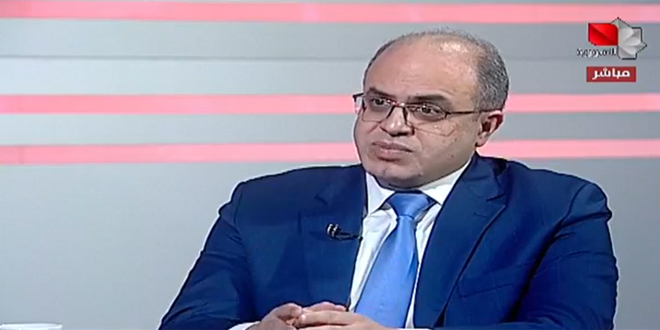Minister of Economy: Government measures aim to reduce price hikes and simplify financial and banking procedures
The minister pointed out that the reality of the Syrian economy is not far from a large part of the global economic problems that created an additional wave of inflation that has worsened with the imposition of Western sanctions on the Russian Federation, stressing that Syria was able, despite all circumstances, to maintain a rate of stability in the exchange rate despite its high rate compared to other neighbouring countries.
Al-Khalil indicated that in a special meeting of the Economic Committee under the supervision of President Bashar al-Assad ten days ago, there was an economic strategy and clear policies, where a very important and broad discussion took place. Emphasis was placed on giving priority in support to the production sectors.
Al-Khalil stressed that the priority today is for the production sector, especially the pharmaceutical industries, which provide more than 85 percent of Syria’s needs. The state deals with drug security in a special way, as its price is still determined administratively and is subsidized until today, i.e. it is not sold at international prices, and therefore this sector is funded through the Central Bank.
Al-Khalil explained that food industries also have priority in financing as so are the industrial and commercial sectors, indicating that remittances are not money that is physically transferred, but rather a written commitment, and therefore there is no way to deliver them in foreign exchange.
NR

